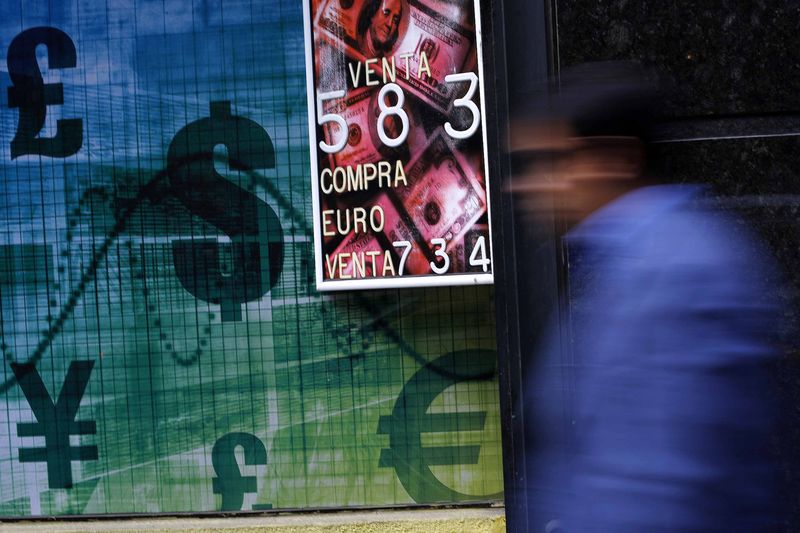By Wayne Cole
SYDNEY, Jan 21 (Reuters) - The Australian and New Zealand dollars slipped on Tuesday as the market mood turned cautious amid mounting concerns a coronavirus outbreak in China could cause economic damage if it spreads widely.
The Aussie eased 0.26% to $0.6854 AUD=D3 , having been steady all morning. It faces resistance at 0.6890 and $0.6910 with chart support in the $0.6850/55 area.
The kiwi dollar edged back to $0.6594 NZD=D3 , from an early top at $0.6624.
Chinese authorities have confirmed more than 200 people have been infected by the new virus, which causes a type of pneumonia that has killed at least four people in the central city of Wuhan. outbreak has spread to cities including Beijing and Shanghai, while four cases have been reported outside China - in South Korea, Thailand and Japan.
Both Australia and New Zealand draw large numbers of Chinese tourists, who tend to be big spenders over the Lunar New Year holidays. Australia said it would step up screening of some flights from Wuhan. outbreak was particularly badly timed as the tourism industry had already been badly mauled by bushfires sweeping the country.
Consumer sentiment had only just been recovering after a very poor Christmas shopping season.
A survey from ANZ out Tuesday showed its index of confidence bounced 0.9% last week, taking it back to where it was in mid-December. Notably, the 'time to buy a household item' category climbed 4.7% to its highest level since October.
A separate survey of household spending intentions from CBA found a continued reluctance to splash out on retail goods, but plenty of demand for houses.
"Home-buying intentions spiked higher in December and are now running at a record rate, consistent with ongoing dwelling price growth," said CBA chief economist Michael Blythe. "But they are also at the point where the early signs of a positive wealth effect are starting to emerge in areas like vehicles."
House prices have shot higher in Sydney and Melbourne since a two-year downturn ended in June, and have added tens of billions to measures of overall household wealth.
The Reserve Bank of Australia (RBA) is hoping this windfall will eventually bolster confidence and feed through to consumption, though the process is proving to be slow.
Markets suspect the central bank will still have to ease gain after three cuts last year took rates to an all-time low of 0.75%. Futures 0#YIB: imply around a 42% chance of a cut at the RBA's next policy meeting on Feb. 4, rising to 62% by March.
That risk has kept bonds supported with yields on three-year paper AU3YT=RR under the cash rate at 0.73%.
Three-year bond futures YTTc1 was steady at 99.250, while the 10-year contract YTCc1 firmed 1 tick to 98.8200.
